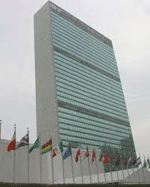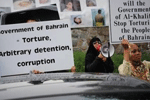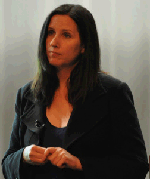Published on Wed, 2013-10-02 14:34
UN-NGLS launched the publication of its report "Advancing Regional Recommendations for the Post-2015 Development Agenda," the synthesis of a four-month consultation conducted in writing and via teleconferences with 120 regional civil society networks. The report can be downloaded here [pdf]. |
Published on Tue, 2013-10-01 17:50
Civil society organizations warn of potential negative effects on development, human rights, and the future of productive sectors as a result of the negotiations between Morocco and the European Union (EU) about a deep and comprehensive free trade agreement, and demand full transparency in the negotiations course. The first round of negotiations between Morocco and the EU about a deep and comprehensive free trade agreement started in Rabat on April 12, 2013. The second round of the negotiations was held in June 2013. The negotiations will include an expansion of the trade agreement already existing between the EU and Morocco to include, in addition to tariff reduction, regulations on services trade, investment and investor protection, government procurement liberalization, competition policy and intellectual property protection. These negotiations will address areas that are at the heart of the structure of national economic sectors and may directly affect the state’s ability and sovereignty in terms of regulating the economy in line with national development goals. |
Published on Tue, 2013-10-01 17:27
A Summit of political leaders will be held in September 2015 to adopt the United Nations' Post-2015 Development Agenda. This was decided at a UN General Assembly special event to review the Millennium Development Goals held at the UN in New York on 25 September. To prepare for the Summit and its outcome, an inter-governmental process will be launched in September 2014, at the beginning of the 69th session of the UN General Assembly. "The final phase of the intergovernmental work will culminate in a Summit at heads of states and governments level in September 2015 for the adoption of the post-2015 development agenda," states an "outcome document" adopted during the special MDG event. |
Published on Mon, 2013-09-30 20:22
Human rights organizations are deeply concerned about the unfair sentences which are likely to be given to 50 Bahraini political and rights activists who have been on trial since July 11 in what is known as the case of the February 14 youth. The activists have been charged with forming an illegal coalition, which the authorities hold responsible for the violence seen in the country during the crackdown on the popular democratic uprising in February 2011. The court has already adjourned for sentencing, even though the trial did not meet minimum standards of fairness and impartiality. Seeing the process as a show trial for the issuance of predetermined sentences, the defendants and their lawyers decided to boycott the trial session scheduled for today, September 29. |
Published on Mon, 2013-09-30 20:08
There are many ways to tell a story. For Trish Hennessy, Ontario director at the Canadian Centre for Policy Alternatives, one way is to look at the most searched word annually for the on-line Mirriam-Webster dictionary. Speaking at the Whitby Courthouse Theatre to a group of Durham-region New Democrats, Hennessy noted that in 2010 the most searched word was “austerity.” A year later it was “pragmatism.” In 2012 there was a tie between “socialism” and “capitalism. Clearly something is shifting,” she said. Many young people are being left out of the post-recession recovery and are now questioning the economic and political system that is denying them their place in society. |
SUSCRIBE TO OUR NEWSLETTER







